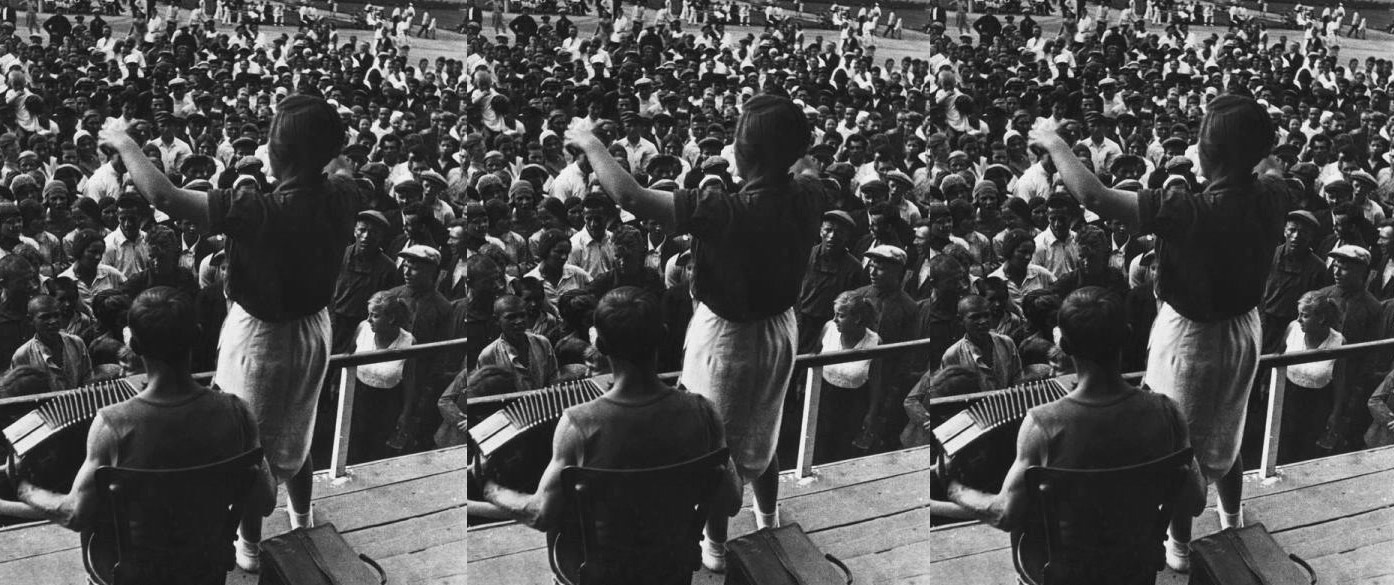Автор: не указан
«Закулисье» — это мир, изолированный от нормальной жизни общества. Традиционно артисты должны быть богемными и темпераментными, наполеоны сцены не должны подчиняться законам и обычаям общества, в котором они живут.
Такое отношение артистов к обществу не только общепризнано за рубежом, но даже считается естественным и бесспорным. Только в Советском Союзе деятели искусства всех областей вовлечены в жизнь страны и даже участвуют в управлении ею. Так, на московских выборах 96,4% актеров присутствовали на предвыборных собраниях.
Богемные традиции были настолько прочными, что их не удалось до конца стереть с лица земли. А. Боярский в статье «Советское искусство» приводит случай с артистом Киевского оперного театра, который ударил технического работника из-за того, что был недоволен качеством изготовленного для него парика.
Подобные инциденты, какими бы абсурдными они ни казались, имеют место быть. По-прежнему существуют и другие пережитки богемы. И хотя трактир больше не является «вторым домом» артиста, некоторые пытаются сохранить этот элемент старой жизни под видом банкетов.
Конечно, пережитки богемы теперь скорее исключение, чем правило, но борьба не закончится, пока мир искусства не станет полностью органичной частью социалистического строя. Нового человека взращивают как в области искусства, так и в промышленности, торговле и сельском хозяйстве. Политические курсы есть во всех театрах. Стремительный рост числа театров сопровождался привлечением талантов из рабочих. Во всех частях города строятся постоянные театры, заменяющие те, что вели кочевой образ жизни. Эти и другие изменения стали мощным толчком к искоренению богемы.
Советский Союз создал огромную армию театральных деятелей и артистов; он распределил искусство по всем уголкам своей огромной территории как оружие в создании бесклассового общества. В то же время изменились и сами артисты. Остаточные следы богемы также исчезнут и благодаря достижениям советской драматургии докажут миру, что только при полноценном участии в общественной жизни, самом тесном контакте с массами и с социалистическим режимом потенциал артиста может раскрыться в полной мере.
«BACKSTAGE» stands for a world isolation from the normal life of society. It is traditional that artists shall be bohemians, people of «temperament», that the «Napoleons» of the stage shall not be bound by the laws and customs of the society in which they live.
This relationship of artist to society is not only generally accepted abroad, but is even regarded as natural and beyond question. Only in the Soviet Union have the artists in all fields been brought into the nation’s life, even to the extent of participating in its government. It is typical that in the Moscow elections to the soviets, 96,4 per cent of the city’s actors attended the election meetings.
The traditions of bohemia were so well established that although the walls of the ivory tower have been razed to the ground, there still remains some clearing to be done. A. Boyarski, writing in «Sovietskoye Iskustvo» (Soviet Art), cites the case of an artist of the Kiev Opera House, who, because a wig was not made to his satisfaction, slapped the technical worker responsible.
Similar incidents, absurd as they seem, could be cited. Other remnants of bohemia still exist. For example, al-though the tavern is no longer the «home» of the artist, there are a few who have tried to maintain this feature of the old life under the guise of banquets.
Of course these left-overs of bohemianism are exceptional rather than general, but the struggle will not be over until the artistic world is completely an organic part of the larger world pf socialist construction. The new man is being nurtured in the fields of art as surely as in industry, trade and agriculture. Political courses exist in all theaters. The vast increase in the number of theaters has been accompanied by the recruitment of talent from the ranks of the workers. Permanent theaters are being built in all parts, replacing those which formally led a nomadic life. These and other changes have been a great force in eradicating bohemianism.
The Soviet Union has created a vast army of theater workers and artists; it has carried the drama to all parts of its vast territory, as a weapon in the creation of the classless society. At the same time the artist, too, has been changed, so that today only traces of bohemianism remain to show what was once the characteristic. These remnants will also disappear and, with the achievements of Soviet dramaturgy, will prove to the world that only from fullest participation in social life, closest contact with the masses and with a socialist regime, can the artist express to the full his inspiration.



